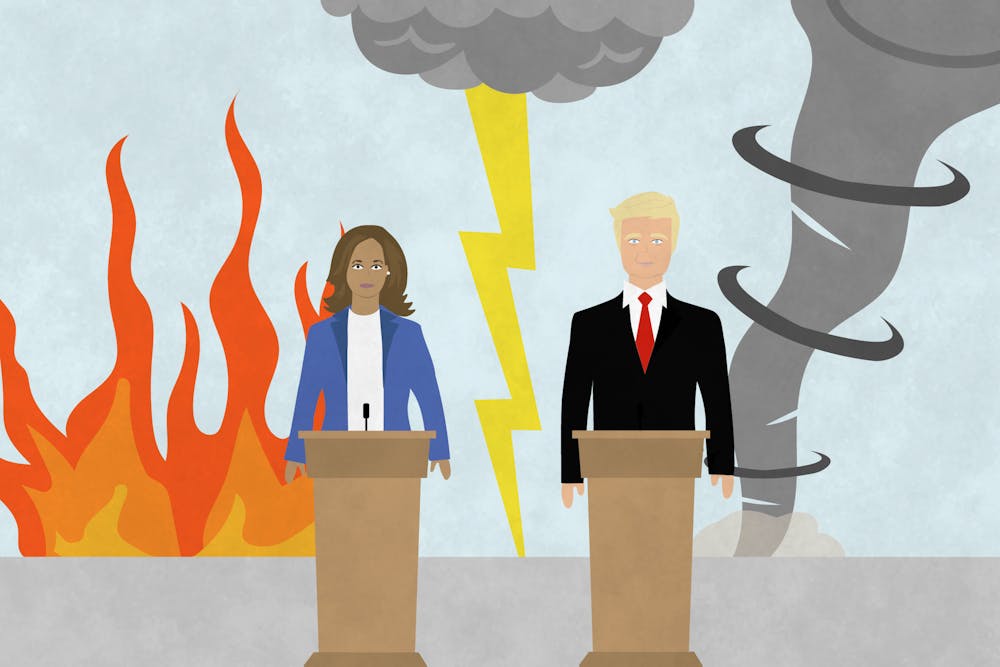In October 2020, then-presidential candidate Joe Biden said climate change is “the number one issue facing humanity. And it’s the number one issue for me.”
However, as America trudges through the final days before the 2024 election, it’s increasingly apparent that neither presidential candidate regards climate change as humanity's number one issue. According to Vice President Kamala Harris, climate change is a pocketbook issue that can be solved through a diversified investment portfolio in fracking and renewable energy. Or, to the real estate-savvy former president Donald Trump, it’s a valuable opportunity to create more oceanfront property.
Since Biden shared his stance, the earth has become a more dangerous place to live. To protect the health of current and future generations, we must demand actionable policy and long-term cooperation from politicians to address this threat. Climate change must be more than a partisan talking point.
The effects of climate change have been felt in our community. Last month, western North Carolina was ravaged by Hurricane Helene, a storm of unprecedented intensity in an area that was unequipped to handle its effects. The extreme amounts of total rainfall experienced in Appalachia before the hurricane, which contributed to the catastrophic flooding that ravaged the homes, businesses and roads of Appalachian communities, was made 70 percent more likely by climate change. Mere weeks later, Hurricane Milton loomed over Florida, rapidly growing from a Category 1 hurricane to Category 5 over mere hours, yielding similar destruction.
For so long, climate change has been an issue stamped “later.” It is talked about as a problem that would affect some future generation of bright young people, who, by then, would be equipped with the wisdom and technology to solve it with ease. It’s increasingly apparent that this nebulous future is now, yet, due to the partisan nature of our political system, America lacks concrete policies that address this threat.
During his time in office, Trump inhibited climate remediation initiatives. He withdrew the U.S. from the Paris Agreement, which had previously committed our country to reducing greenhouse gas emissions by 26 to 28 percent below 2005 levels by 2025. Furthermore, he rolled back more than 125 rules and policies designed to protect the environment and lower emissions and promised to continue to do so if re-elected.
Harris' stance on climate change is exponentially more beneficial than Trump’s outright denial of its existence. Her platform engages with the issue by investing in renewable energy infrastructure and capping industry emissions. As Biden’s vice president, she took part in the creation of the Bipartisan Infrastructure Bill, historic legislation that allocates $47 billion to help America weather the new age of environmental disasters caused by anthropogenic climate change.
However, while Harris has expressed an intent to address climate change in her platform through the creation of a “clean energy economy," she has hedged her policies with appeals to voters in fossil fuel-dependent sectors, exemplified in her promise to support fracking in Pennsylvania. Her platform has taken a distinctly economic angle on climate policy rather than humanitarian, which renders her policy stance vague and unable to effect tangible change.
This reluctance to take a hard stance on climate change is seen across the political spectrum, and for good reason; tackling climate change is a gargantuan endeavor. Shifting our fossil fuel-reliant society away from non-renewable energy sources will cause periods of economic, social and cultural upheaval. However, the period of turmoil that this change will cause is dwarfed by the catastrophic effects of climate change if left unaddressed.




